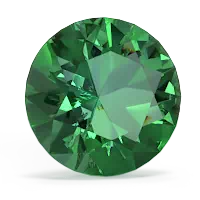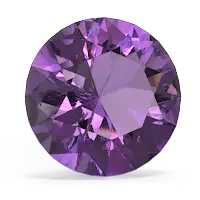

Friendship, love and loyalty are represented by this historic celtic design. A Lab Emerald claddagh ring with your birthstone or favorite color makes it even more significant. The birthstone of May, an emerald ring symbolizes the eternally returning spring. The velvety green color of emerald is a perfect match for spring and summer fashions. As the gem of peace and tranquility, amethyst is mesmerizingly beautiful. A durable and affordable gem, an amethyst ring is excellent for every day wear.